Description
Career:
Zoetemelk turned professional for Briek Schotte’s Belgian Mars-Flandria team in 1970. He came second to Eddy Merckx in that year’s Tour de France.
He would wear the Yellow Jersey for the first time in the 1971 Tour de France and for the second time after winning the Prologue in the 1973 Tour de France, while also picking up another Stage win in that year’s edition.
Zoetemelk won Paris–Nice, the Semana Catalana and the Tour de Romandie in 1974 and then crashed heavily into a car left unattended at the finish of the Midi Libre in Valras-Plage, France. He cracked his skull and came close to dying.] He returned next season to win Paris–Nice again and then caught meningitis. He never fully recovered and the head injury reduced his sense of taste. He nevertheless won 20 races that season, including Paris–Nice, the Tour of Holland and the Dwars door Lausanne and a stage of the Tour de France. He also came fourth in the Tour de France.
During the 1975 Tour de France Zoetemelk won stage 15 and finished strongly overall, placing behind only Bernard Thevenet, Eddy Merckx and Lucien Van Impe in a Tour where the next closest contenders were close to 20:00 or more behind the winner. In the 1976 Tour de France he won stage 9 up Alp d’Huez by:03 in a hard-fought climb where he and Van Impe dropped all other riders and were alone crossing the finish. In stage 10 Zoetemelk once again won the stage, this time beating Van Impe and Thevenet by just one second, in the process coming within just seven seconds of the Yellow Jersey. On stage 14 however, Van Impe attacked and for all intents and purposes won the tour. Zoetemelk would win again on Stage 20 but he remained more than 4:00 behind Van Impe as every other rider was more than 12:00 back.
In the 1977 Tour de France he would have the worst Tour placing of his career up to that point, which was partially because he was penalized ten minutes and had a stage win revoked. He still finished in the Top 10 overall.
During the 1978 Tour de France he won stage 14 and took the Yellow Jersey on Alp d’Huez, which he would hold for 6 stages before losing it on the final ITT to Bernard Hinault. In the 1979 Tour de France he survived the ‘’hell of the north” cobbles of Roubaix on Stage 9, which is a notorious stage where several riders can get multiple flat tires and there are always many crashes. Zoetemelk survived with four other riders in the winning group, won 3:45 over the next finishers and moved into the yellow jersey, which he would hold for 6 stages. Following the stage 11 time trial it was a two way battle between him and Hinault and it was possible that he would win the Vuelta-Tour Double. In the end, Hinault would take the lead and he and Zoetemelk finished nearly a half-hour ahead of the rest of the field as Zoetemelk refused to give up and attacked on the final stage into Paris. It was not enough to break Hinault however as he took 2nd place on the podium for the 5th time.
The following year he was riding with a new team in TI-Raleigh, who was one of the strongest cycling teams in the world and they grew even stronger after signing Zoetemelk. At one point in this Tour TI-Raleigh won seven stages in a row, one of which was an ITT won by Zoetemelk where he gained 1:39 on Hinault and pulled within 0:21 of the overall lead prior to the first stages in the high mountains. Hinault withdrew and Zoetemelk remained the strongest rider in the Tour despite suffering a violent crash on Stage 16 which cut his arm and leg open. He would also claim another stage win during the final ITT winning the 1980 Tour de France by nearly 7:00 over Hennie Kuiper and Raymond Martin.
In 1981 he would finish 4th overall and he would finish 2nd for the 6th and final time during the 1982 Tour de France. While he was in his late 30s during his final Tours between 1982-1986 and was no longer a pre-race favorite he still remained the strongest GC general classification rider on his team and always had a respectable placing in the overall standings. Including in his final Tour, which he rode wearing the Rainbow Jersey as reigning World Champion and late in his career he was still good enough to win major races including the 1985 World Championship, Tirreno-Adriatico and the Amstel Gold Race.
Of one-day races he won La Flèche Wallonne in 1976, the Grand Prix d’Automne in 1977 & 1979, came fourth in the World Championships of 1976 & 1982, before winning in 1985, the oldest man to win the professional title.
Going into the 1985 World Championships…
the primary favorites were thought to include Bernard Hinault, Greg LeMond and being as it was thought the course could produce a sprint finish riders like Sean Kelly or even defending world champion Claude Criquielion. There were several early breakaways, but none of them included any riders considered threats to stay away and never extended their gap much beyond two minutes. There were two major crashes, both of which Zoetemelk managed to avoid but the second crash on lap 12 (of 18) allowed a breakaway to form with five riders including Jens Veggerby, Dominique Arnaud and Johan Van Der Velde. This group built up a gap of over two minutes before the surviving peloton began reeling them back in. Hinault had an off day, suffered a flat tire, and abandoned the race, as did several other strong riders including Hennie Kuiper, Dietrich Thurau and Urs Freuler. By lap 17 the race had come back together and riders such as Moreno Argentin, Australian Michael Wilson and Criquielion had launched attacks but before long they had been brought back. By the final lap Zoetemelk had been all but invisible within the pack no different than many other riders, but he was still in the race as riders like Stephen Roche of Ireland and Kim Andersen of Denmark launched attacks that were eventually brought back. Following the final climb there were less than 20 riders still in contention, but it was a very strong surviving group that was going to come down to a sprint finish with riders including former champs LeMond and Criquielion, as well as Andersen, Roche, Robert Millar, Marc Madiot, Italian riders Argentin and Claudio Corti, who finished 2nd the previous year, as well as three Dutch riders in Zoetemelk, Van Der Velde and Gerard Veldscholten. Knowing he would not win a sprint against the youngest, strongest riders in the world he launched an attack with over a kilometer to go. Going into the second to last turn Zoetemelk got to the front of the group, moved all the way to the outside of the road then swept back along the inside charging forward into the straightaway. Perhaps, as he was by far the oldest rider in the group and considered long past his prime, his attack caught the surviving contenders by surprise and he quickly opened a gap of fifty meters. His teammates in Van Der Velde and Veldscholten moved to the front of the group, but we’re not actually chasing Zoetemelk down and were therefore slowing the chase group. As he went under the flamme rouge banner he had a gap of over 300 meters and was continuing to pull away from the best riders in the world. With 400 meters to go in the race he had a gap of 500 meters and Argentin was at the front of the pack trying to bring back Zoetemelk’s attack but couldn’t, so he actually put his arm in the air and waved for someone else to come forward and help. No one did, including LeMond who stated after the race that he just wasn’t strong enough to bring back this final attack after chasing down the attacks of other riders all day long. As the finish line approached he looked over his shoulder one final time and began celebrating. He crossed the line with his hands in the air and as his teammates Van Der Velde and Veldscholten crossed the line in 9th and 14th place, they too threw their hands in the air in celebration. As of 2020 Zoetemelk is still the oldest world champion in the history of this event and of the other top 10 finishers in the 1985 race all of them were between 24 and 28 years old.
Regarding his victory in the 1980 Tour de France, Peter Post, manager of the TI–Raleigh team in the Netherlands, approached Zoetemelk through his wife, Françoise, after the world championship in 1979. Zoetemelk had long lived in France and ridden for French teams. His sponsor, the bicycle company Mercier, had ended its sponsorship and Zoetemelk was looking for a new team. The following year Zoetemelk won his – and TI–Raleigh’s – only Tour de France. The pre-race favorite, Bernard Hinault had retired halfway due to knee-problems. Zoetemelk objected to claims that he had won only because Hinault had dropped out, saying: “Surely winning the Tour de France is a question of health and robustness. If Hinault doesn’t have that health and robustness and I have, that makes me a valid winner.”
Gerald O’Donovan, the TI–Raleigh director behind the sponsorship of the team, said:
- “We needed a winner and for 1980 signed Joop Zoetemelk, who had an outstanding record of places but had probably enjoyed less support than we could give him. We cleaned up the Tours of Belgium, Holland and Critérium du Dauphiné Libéré in preparation and waited for the big day. The big plan to control Bernard Hinault, who had won for the previous two years, came to fruition. The team attacked his every move; this was Panzer Group Post at its most formidable. About halfway through the race he abandoned the lead to Zoetemelk and pulled out of the race. We arrived in Paris with the overall lead, 12 stage wins, and the team prize, to say nothing of a whole bundle of francs. We had pounded away winning the battles for the previous four years; at last, we had won the war.”
In 18 years as a professional (1969–1987), Zoetemelk won the Tour de France in 1980, and in the Vuelta a España he won the King of the Mountains in 1971 and the General Classification in 1979. He came second in the Tour de France six times and came in the top 5 eleven times, both of them Tour de France records. He also finished the race sixteen times, a record that he shares with Sylvain Chavanel. He holds the record for total kilometers ridden and another record Zoetemelk held was for the most stages completed in TDF history with 365, a record that was not broken until 2018 by Chavanel.
Excerpt from Wikipedia – Full Entry can be found here – https://en.wikipedia.org/wiki/Joop_Zoetemelk
****************
As each jersey is one of a kind, please look carefully at the photos to determine the condition.
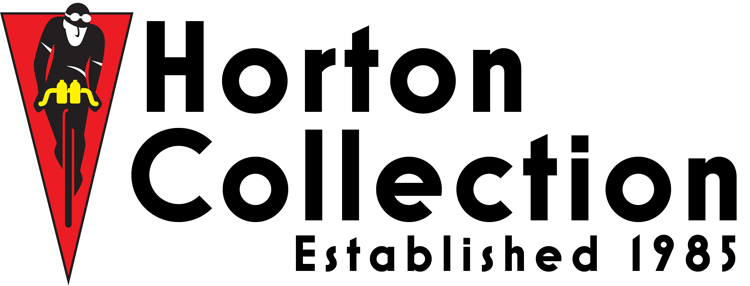

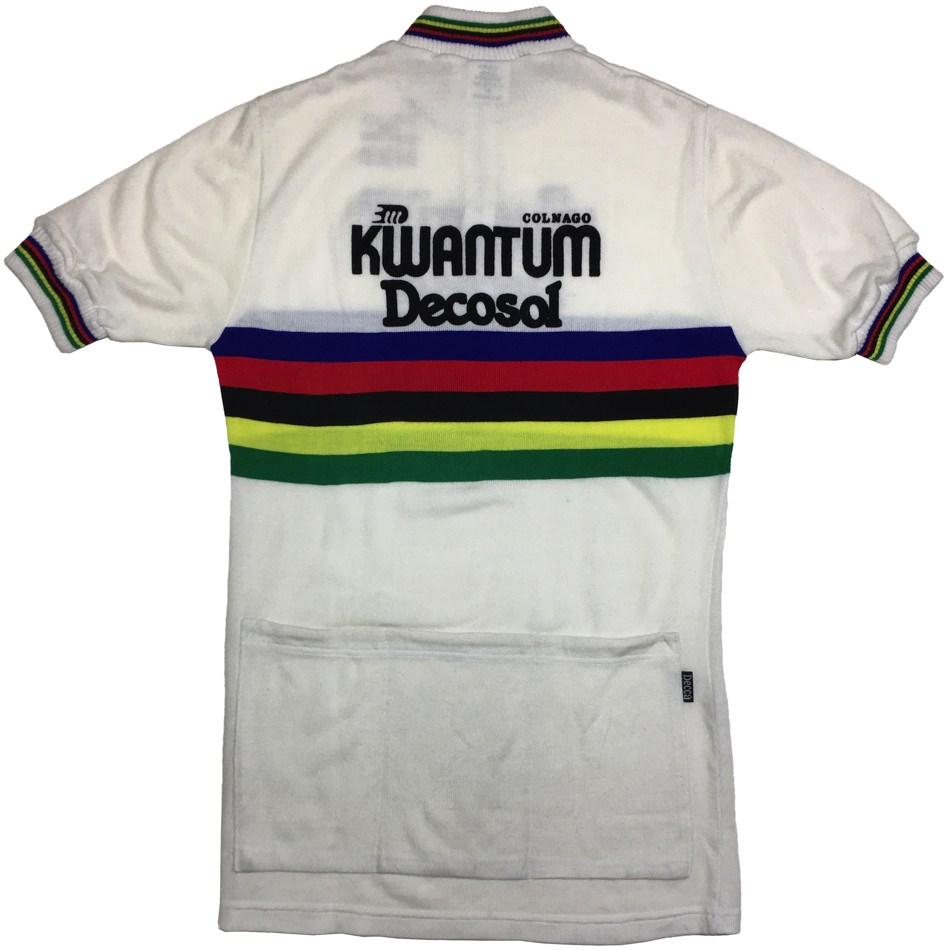
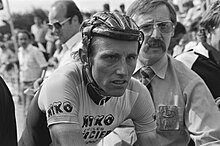
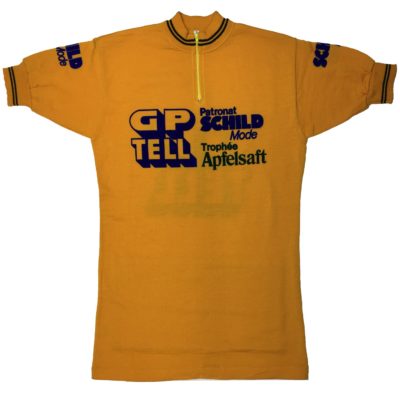
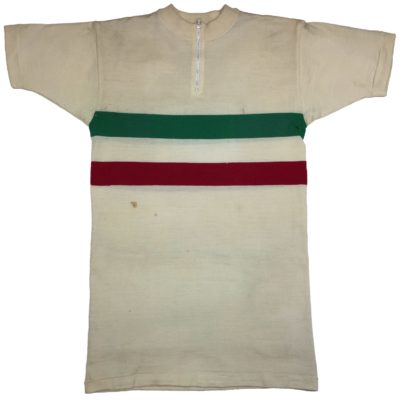
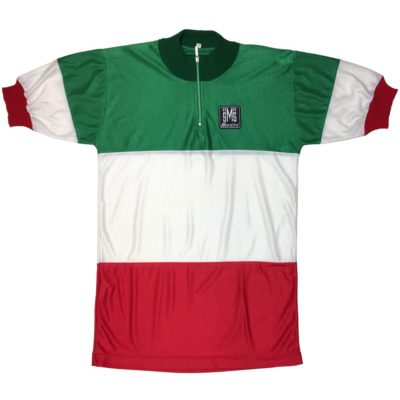
Recent Comments